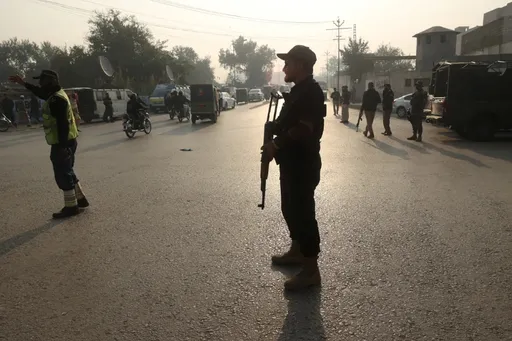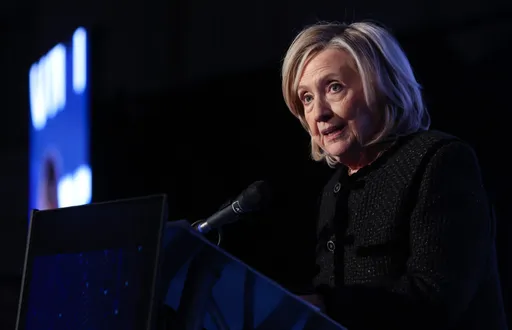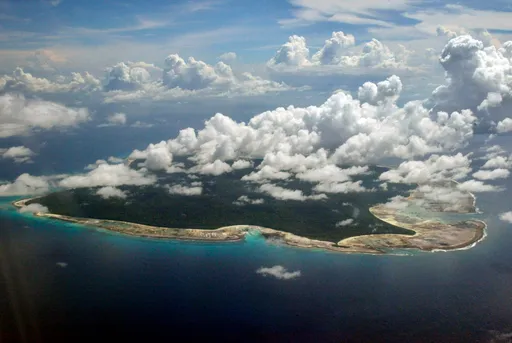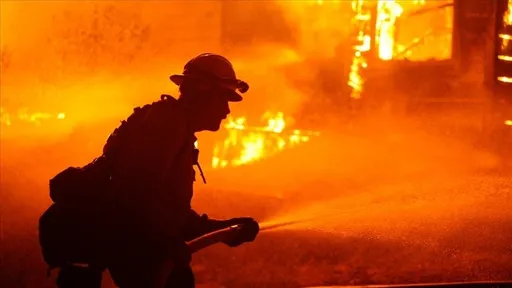It is better to remain silent and let the world think you are stupid rather than open your mouth and confirm it. The same logic applies to occupying and colonising countries.
On August 5, 2019, India showed the world that it was not only one of the world’s worst occupiers of another people’s land but also the world’s first post-colonial, colonial power.
On that day it abrogated Article 370 of its constitution to usurp the last few remaining protections the people of Indian Occupied Jammu and Kashmir (IOJ&K) had against becoming a minority in their own land. Typically, bereft of all sense of shame or irony, India has been trying to sell this annexation as giving the Kashmiris more democracy and liberty. The reality is very different.
On 10 September 2019, over fifty countries from across the world issued a joint statement at the Human Rights Council, Geneva, expressing their deep concern at the prevailing human rights situation in the Indian Occupied Jammu & Kashmir (IOJ&K).
This follows similar concerns expressed by the UN Secretary-General, Antonio Guterres; UN High Commissioner for Human Rights, Michelle Bachelet; over half a dozen UN Special Procedures and Rapporteurs; Organization of Islamic Cooperation and its Independent Permanent Human Rights Commission; civil society organisations; human rights watchdogs; conscientious members of parliament the world over; and last but not the least, the international media.
India would like us to believe that all these personalities and institutions are either misinformed or being manipulated by Pakistan. Long accustomed to manipulating the facts on Kashmir, India cannot comprehend that truth has a way of coming out.
This international outcry comes in the backdrop of the continuing blockade of the IOJ&K, now hitting the 50-day mark, imposed by nearly a million Indian occupation soldiers through the force of guns and bayonets.
Reminiscent of the infamous “iron curtain,” nearly eight million Kashmiri men, women and children remain prisoners in their homes, in their very own land – hidden behind what can at best be described as a “Saffron Curtain.”
There are no telephones, no cell coverage, no internet, no media or press, and certainly no human rights organisations and observers in IOJ&K.
Armed Indian soldiers stand before every house; checkpoints and barbed wires block every street, and military vehicles patrol the empty roads. Farmers have been cut-off from their orchards and fields; children from their schools; faithful from the mosques; patients from the hospitals; and above all, mothers and fathers from their sons and daughters. Hospitals are short of medicines, and markets of food and daily essentials. All Kashmiri political leaders remain under detention.
Those who dare to step out to protest this inhuman collective punishment are forced back by “pellet guns” – a sinister, so-called “non-lethal weapon”- designed to inflict maximum physical and psychological pain.
India claims that it does not kill - only blinds, cripples, and disfigures the victims, and leaves them physically and emotionally scarred forever. Only in an occupying and colonising power’s perverse imagination, such as India’s, can all of this be called freedom, democracy or “normalcy.”
While the use of these inhumane tactics is nothing new for IOJ&K, where since 1989 alone, Indian occupation troops have martyred around 100,000 Kashmiris, they have now reached a new low, and the velvet glove of pseudo-legality that couched the iron fist of Indian occupation was finally taken off.
Through a so-called “Presidential Order”, India rescinded IOJ&K’s “special status,” further tightening its anaconda-like stranglehold around Jammu & Kashmir, to incrementally gulp it down to satisfy its hunger for other people’s land.
Through these illegal actions, not only has India itself dismissed all notions regarding its sincerity to resolve the Jammu & Kashmir dispute peacefully (if ever there were any) but has also levelled the grounds for changing the demographic composition of the disputed region.
A country that preaches putting mind and spirit over matter through Yoga is today willing to kill and destroy every Kashmiri mind and spirit to take over Kashmiri land.
Irrespective of these illegal actions by the Indian government, Kashmir has been and remains an internationally recognised disputed territory. The relevant UN Security Council resolutions on Jammu & Kashmir, which India continues to violate, warn against any material changes on the ground till the final settlement of the dispute. They also guarantee that the future of the State of Jammu and Kashmir would be decided through the democratic method of a free and impartial plebiscite conducted under UN auspices.
It is hard to understand India’s collective amnesia on this issue despite the fact the disputed nature of the territory was recognised by India’s founding fathers, including the first Prime Minister of India, Jawaharlal Nehru. That is why India does not wish to hear the word United Nations Security Council in the context of this internationally recogniSed dispute, despite aspiring to become its member.
India’s response to criticism of its horrendous human rights record in IOJ&K is that all would be well if there were no foreign-sponsored terrorism in the territory. This is a time tested fall-back position of all occupiers and colonisers – make the victim the violator and become a victim yourself.
The fact is that if 100,000 Kashmiris were killed between 1989 and today, they were killed by the Indian occupation forces, not the so-called terrorists. If more than 12,000 Kashmiri women were raped in this period, it was the Indian occupation troops who committed these crimes, not the so-called terrorists. If hundreds of Kashmiris were killed in extra-judicial executions, it was the doing of the Indian occupation forces, not the so-called terrorists. If countless houses were demolished in collective punishments during this period, it was the Indian occupation forces that did this, not the so-called terrorists.
The fact is that the only terrorists in IOJ&K are the Indian occupation troops, who have carried out the world’s worst spree of state-sponsored terrorism against a helpless population for more than 70 years, but particularly since 1989.
Not only are these occupation troops armed with lethal and incapacitating weapons, but they are also armed with laws granting them immunity from all crimes and human rights violations they commit in defence of Indian oppression.
It is ironic that in IOJ&K, the only people enjoying the protection of the law are not the oppressed Kashmiris but the oppressive Indian occupation troops.
India’s recent actions in IOJ&K are also a reflection of the global wave of the right-wing extremism, jingoism, populism and Islamophobia, rearing its monstrous head in our region in the form of Hindutva. Under this poisonous ideology, hate, coercion, fear-mongering, and intimidation have become mainstream – both within and outside India.
The increasing incidents of cow-vigilantism; public lynching; as well as religious discrimination against Muslims in India are off-shoots of this mind-set. Worryingly, the ideology, which was behind the demolition of the Babri Mosque in 1992 as well as the killing of hundreds of Muslims in Gujrat, now rules from Delhi, with the entire state apparatus at its disposal. India's Prime Minister Modi was banned from the US for 'severe violations of religious freedom' for years due to his role in the Gujrat violence.
Kashmiris, unfortunately, find themselves in the crosshairs of this ideology. The recent developments in Jammu & Kashmir are not only an attempt to complete its physical occupation but also to ensure Kashmiris surrender to this ideology. And in yet another ironical twist, India proclaims itself as a paragon of secularism.
Today, South Asia, which is home to one-fifth of humanity, stands on the brink of another possible conflict, with Indian leaders brandishing nuclear weapons against Pakistan the way Indian soldiers are pointing their bayonets at the Kashmiris.
Indian diplomats, including their foreign minister, talk of forcible occupation of Azad Kashmir, the part of Kashmir that managed to free itself from Indian occupation in 1947. Once again the irony is probably lost on India. Not since Ribbentrop have diplomats so openly espoused aggression. Ribbentrop at least spoke for a fascist dictatorship, Indian diplomats profess to speak for a democracy. One wonders which is worse.
The International community must step-in and call on India to lift the on-going blockade of IOJ&K; cease the gross violations of human rights immediately; end impunity; hold accountable those responsible for atrocities; allow independent observers to the region; and uphold the right to self-determination of the Kashmiris.
Seventy years ago, India pledged to the Kashmiris that they would be the arbiters of their fate and their wishes will be ascertained through the democratic method of a free and fair UN-administered plebiscite. It is time that India honoured this pledge.























